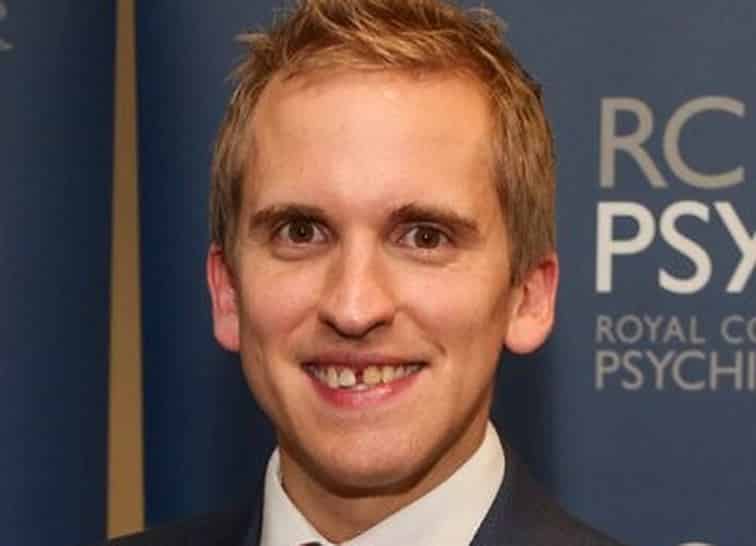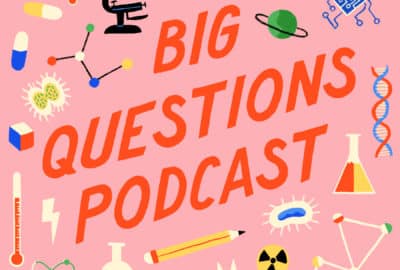Did the pandemic make us moodier?
Wednesday 12th May 2021, 1.29pm
Lockdowns, social distancing, restrictions on ‘normal’ activities – we’ve all been affected by the COVID-19 pandemic. But how has it impacted on our mood and mental wellbeing? We chat to Dr Max Taquet from the Department of Psychiatry about ‘mood homeostasis’ (the interplay between people’s activities and the way they feel), and how this has been affected over the past year. He also tells us about a new study into the impact of COVID-19 infection itself on mental health.
Emily Elias: This past year has been a lot, like, more than a lot. We have navigated lockdown restrictions, COVID-19, and, safe to say, it was a difficult time for everyone. And on this episode of the Oxford Sparks Big Questions podcast, we are looking at the psychological effects of the pandemic. And we are asking, did the pandemic make us moodier?
Hello, I am Emily Elias, and this is the show where we seek out the brightest minds at the University of Oxford, and we ask them the big questions. And for this one, we have got a researcher who is very tuned in to our pandemic woes.
Max Taquet: So, my name is Max Taquet, and I am a researcher with the Department of Psychiatry, and I share my time between doing research and seeing patients with severe mental illnesses.
Emily: Obviously, from a psychological perspective, on a scale of 1 to 10, how interesting has this pandemic been for you, as a researcher?
Max: Well, I guess 10 out of 10. I think it has been fascinating to understand- Fascinating might not be the right word and, in some instances, it has mostly been concerning, more than fascinating. But it has certainly been very interesting to see the link between the physical health and the social aspects of the pandemic and our mental health, and our mood, in particular.
Emily: So, let’s hop into our Oxford Sparks time machine. You know the time machine, you love it. And we are heading to the very, very exotic location of March 2020. Max was just finishing up a study about mood and we were going into what we would nostalgically call ‘lockdown one’.
Max: So, I was very- Because we had just published something just before the pandemic, saying that what people do affects how- Their daily activities affect their mood and how they feel. We thought lockdown must have an impact on that, and it’s such a shame that we don’t have data on that. So, I was very, very curious to see if anybody would have data.
Emily: And was there anybody out there, collecting that kind of data?
Max: There was actually a study that is being run every year in the Netherlands. That is not something that I have been involved in, in previous years at all. And indeed, actually it’s not something that I’ve been involved in this year. One of the principal investigators of that study posted a tweet and I happen to follow him.
He posted a tweet, saying, “Hey, here is some data on the pandemic and the impact that it has on mood.” And using, I guess, open science at its best, we managed to have access to that data, thanks to that researcher, called Eiko Fried. So, that is how we started exploring the impact of the pandemic on mood.
Emily: So, what was so special about his data set?
Max: A stroke of luck really. But he collects data every year amongst his students, who are psychology students. And the data consists of those students reporting their mood and their activities every day on a mobile phone app for two weeks.
And it just so happened that, this year, the first part of that recording happened just before the lockdown struck in the Netherlands. And the second part of that recording happened just after it. So, we had a great opportunity to see exactly what was happening to people’s activity and mood, as lockdown started to be implemented.
Emily: That’s crazy. I mean, that does sound like a really massive stroke of luck, to actually watch, in real time, how lockdown affected these students.
Max: That’s right, yes. I mean, I was ecstatic when I saw that data set was out there, because I thought we had missed the opportunity to actually do that, even trying to do it retrospectively, which would have been less than ideal. So, I got very lucky to have access to that data.
Emily: And what did you actually find? What was going on with these students?
Max: So, what we found is that mood homeostasis, which is that interplay between people’s activities and how they feel as a result, which we knew was associated with depressed mood and depression, was impaired following lockdown.
But it wasn’t impaired in the same way for all students, it impacted students with a history of mental illnesses significantly more than students with no history of mental illnesses.
What it means is that, even though, before lockdown, students with a history of mental illnesses had pretty much the same level of mood homeostasis as their peers who didn’t have a history of mental illness. During lockdown, those students were much more impacted, and their mood reduced significantly more, as a result.
Emily: I think it’s fair to say that we all did feel sadder or more depressed or just- It wasn’t a great time for humanity, when everything changed with the pandemic and we went into the first lockdown. I don’t know anybody in my social group that was high-fiving a million angels and having the greatest time ever. (Laughter)
But how important is it for you to be able to actually point to real data, that shows that this is what was happening at this time?
Max: Well, I think the important thing is to understand not just whether mood was decreasing, but how mood was decreasing and why mood was decreasing. Because, as I said, the important thing is to be able to reverse that pattern. And for those people who become patients who are most affected by lockdown, to be able to provide the best possible treatment, for their mood to remain stable.
So, I think understanding the why and the how is probably much more important, or at least as important, as understanding whether mood is decreasing during lockdown.
Emily: Okay. So, it impacts our mood for the worse, but how does it do that? Do we have any indication of how to treat it?
Max: It’s very important to understand those mechanisms in order to devise interventions that might be best targeted at that mechanism. And it doesn’t necessarily mean that we need to develop new treatment, it might well be that existing treatments are well-tailored to address that mechanism.
For instance, there is a treatment called ‘behavioural activation’, that is part of a broader type of psychotherapy, called cognitive behavioural therapy, or CBT, for short. And that tends to address how we can change our activities in order to affect how we feel, our mood.
And I think that one hypothesis that the data that we showed suggests is that, by using behavioural activation, we might be able to address the depressed mood that some people felt during lockdown, or are still feeling.
Emily: Okay. So, obviously, you’ve been very busy in this pandemic, because you didn’t just stop there. Once you had one study, you went for another study. (Laughter) This time, looking at the actual effect on somebody who had COVID, and what kind of psychological stuff goes on with them.
Max: Yes. So, it became clear, not directly at the onset of the pandemic but relatively quickly, that actually, SARS-CoV-2, which is the virus that causes COVID-19, does not just impact people’s lungs but it impacts different systems in their bodies.
And one system that it impacts is the nervous system, so the brain, for short. So, the question that we were interested in answering was, is there an association between having a diagnosis of COVID, being affected by COVID, and subsequent mental illnesses.
In other words, are people with COVID-19 more likely to have a mental illness in the month after their illness than people who did not have COVID-19?
Emily: And what did you find?
Max: What we found is that, in the six months after a diagnosis of COVID-19, one in three patients go on to have a brain disorder, either a neurological illness or a psychiatric illness. And the bulk of that one-in-three patients actually consists of patients suffering with an anxiety disorder or a depressive disorder. So, this is not just low mood, this is an actual disorder which requires a specific treatment.
That rate is quite staggering and, in a way, it’s quite concerning. But one thing that we wanted to make sure of is, is this to do with COVID-19 itself or is it just a context? Because obviously, if you take a random set of individuals from the population and you follow them for six months, you will find some of them will develop depression or anxiety.
So, what we did is we used a control group of patients who had, not COVID-19, but another infection affecting the lungs, so things like influenza, for instance, the flu. And what we found is that patients who had a diagnosis of COVID-19 were significantly more at risk of developing depression or anxiety than their counterparts, who had the flu.
So, that really showed that there seems to be a direct association between COVID-19 itself and subsequent psychiatric illnesses.
Emily: How important is it for you to make this sort of discovery and make this link, as people who are now suffering with Long COVID and longer-term disorders are trying to come to grips with what it actually means for their lives?
Max: Well, it’s important on many grounds. I think, for individual patients who are suffering with those symptoms of low mood or anxiety, it is important to know that they are not alone and that other people who had a diagnosis of COVID might also be suffering with those ailments.
What it also means is that those patients need to seek medical advice, if this becomes too difficult for them to live with. Because there are some treatments which exist, they are effective, and there is no reason not to seek help in those situations.
On the more, I guess national or global level, what that means is that health services need to be ready to face the increased demand for diagnosis and treatment of those disorders. So, that is the impact that that research has on a more global level, to inform public health policies.
Emily: I know earlier you gave us a 10 out of 10 for how fascinating work in your field is right now. It just sounds like you’ve got a lot to take on. Do you ever just feel like this is all exhausting?
Max: I think that’s right. And I think there is this dichotomy in research, when we find something that we are incredibly passionate and interested about, and then, when we step back and start thinking about what those numbers actually mean for individual patients, it is very concerning. And it can be hard to face the mixed feelings of being very enthusiastic by the research, but also realising the impact that it has on all of us.
Emily: This podcast was brought to you by Oxford Sparks, form the University of Oxford, with music by John Lyons, and a special thanks to Dr Max Taquet. And if you liked this podcast, we would love to hear from you. We are on social media at Oxford Sparks, or you can find us on our website, oxfordsparks.ox.ac.uk. I am Emily Elias. Bye for now.




